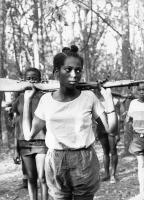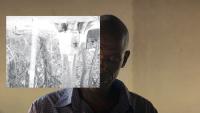archive
Articles tagged with archive
Tag Archive
- 2020
- Abotcha
- Adolfo Luxúria Canibal
- África Ocidental
- afro-music
- Afropolitanism
- Alqueva
- Ana Paula Tavares
- António Pinto Ribeiro
- arabes
- artists
- association tchiweka de documentation
- Basileia
- black art
- Black movement
- Britain
- Cameroon
- carbono
- colóquio
- communities
- composer
- congoísmos
- contemporary photography
- COVID-19
- cuban communist party
- DAMARA INGLÊS
- dia da consciência negra
- Diário de um etnólogo guineense na Europa
- environmental sustainability
- eurocentrism
- favela
- Festival de Músicas do Mundo
- Flora Gomes
- gente de cor
- ghana
- historicism
- holocaust
- humanity
- Irland
- Jamaica
- José Saramago
- JSF#2
- Julie Dash
- Keita mori
- Kepha Oiro
- Kurt Kohlstedt
- literature
- Lunda
- lyubov matyunina
- Macau
- media
- Memorial to Homage Enslaved People
- memórias
- Middle East
- Miguel Gullander
- Mississippi
- Modernity
- mozambican artists
- musica africana
- namibe desert
- New Orleans
- Octavia Butler
- Oppressions
- pánu di téra ; Cape Verde; textiles; fashion design; globalization; identity
- Pedro Maurício Borges
- photographie
- pintura
- poetry
- post-colonial
- primatas
- project
- public space
- queer
- racist system
- refugiados
- René Tavares
- representativity
- resistance
- RESTITUTING ARTWORKS
- Sao Tomé et Príncipe
- satire
- semba
- Sené Absa
- símbolos
- Sines
- soldiers
- statues
- stop racism
- Sueli Duarte
- suíça
- Teaching
- teatro
- territory
- The Mechanics of the Ephemeral
- todos festival
- transnational
- urbanism
- viagens científicas
- William Shatner e Amílcar Cabral
- “home languages”
 No history of decolonization or of decolonizing praxes is ever completed without attention to gender. How did women view the liberation struggles in the former Portuguese colonies? How were their ways of seeing integrated or not in the imagination of colonialism? Was there a specific gaze to women over the liberation struggles? What knowledge and awareness do we have of/about these ways of seeing? And how do these ways of seeing intersect with those of contemporary filmmakers, artists, curators and academics who are now questioning public and private archives, are visually recreating their memories or re-imagining colonialism? What role academic research, archive conservation policies, programming and curatorship have in questioning or prolonging (official) “politics of memory”?
No history of decolonization or of decolonizing praxes is ever completed without attention to gender. How did women view the liberation struggles in the former Portuguese colonies? How were their ways of seeing integrated or not in the imagination of colonialism? Was there a specific gaze to women over the liberation struggles? What knowledge and awareness do we have of/about these ways of seeing? And how do these ways of seeing intersect with those of contemporary filmmakers, artists, curators and academics who are now questioning public and private archives, are visually recreating their memories or re-imagining colonialism? What role academic research, archive conservation policies, programming and curatorship have in questioning or prolonging (official) “politics of memory”?  The book condenses some important aspects of the project. Its authors are not made explicit, pointing to the collaborative nature of this effort of rescue and rereading. But it also ends up suggesting that this living process of documenting complicates the very notion of authorship as a sovereign gesture with the authority to determine how images are exposed (or concealed), or to guide interpretation and impose meaning.
The book condenses some important aspects of the project. Its authors are not made explicit, pointing to the collaborative nature of this effort of rescue and rereading. But it also ends up suggesting that this living process of documenting complicates the very notion of authorship as a sovereign gesture with the authority to determine how images are exposed (or concealed), or to guide interpretation and impose meaning. 